Taiwan Admitted to US Visa Waiver Program
the editors / photos Jimmy Lin / tr. by David Smith
November 2012
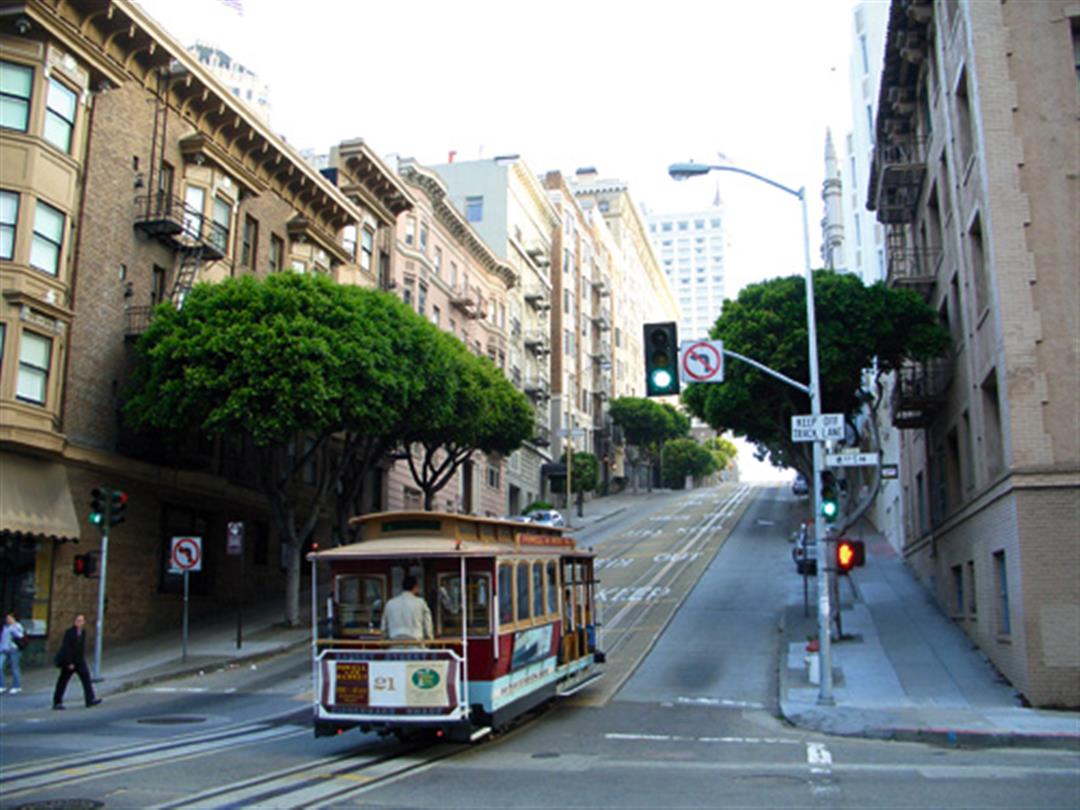
With United States president Barack Obama fighting for re-election and the recently appointed ROC chief representative to the United States easing into his new post, the US announced that Taiwan has been designated for inclusion in its Visa Waiver Program (VWP), thus injecting new momentum into the bilateral relationship. This brings to 129 the number of jurisdictions around the world that anyone from Taiwan holding an ROC passport will be able to visit without first applying for a visa, and highlights the excellent status that the people of Taiwan enjoy in the international community.
“Want to take a trip to the US? Just get up and go!” Beginning from November 1, a traveler from Taiwan wanting to visit the US for 90 days or less need only pack his bags, buy an airplane ticket, and take off.
With President Obama seeking re-election, the White House has been hoping to get an immediate economic stimulus benefit by sharply reducing the waiting period and complexity of procedures involved when tourists from other countries apply for a US visa. Tourism has always been a big driver of economic growth and employment. In 2011, the travel and tourism industry generated US$1.4 trillion worth of output for the US and employed millions of people.
Of course, the key factor now making it possible to “just get up and go” overseas is not the availability of airline tickets and hotel rooms. The critical difference is the elimination of the requirement for an entry visa.
Visa approval procedures in the US became quite stringent after the 9/11 terrorist attacks. In Taiwan, applying for a visa entailed filling out a seemingly interminable English-language application form, paying a visa fee of NT$4800, going in for an interview, and waiting for approval. Now, in contrast, one need only go online and obtain an electronic travel authorization.
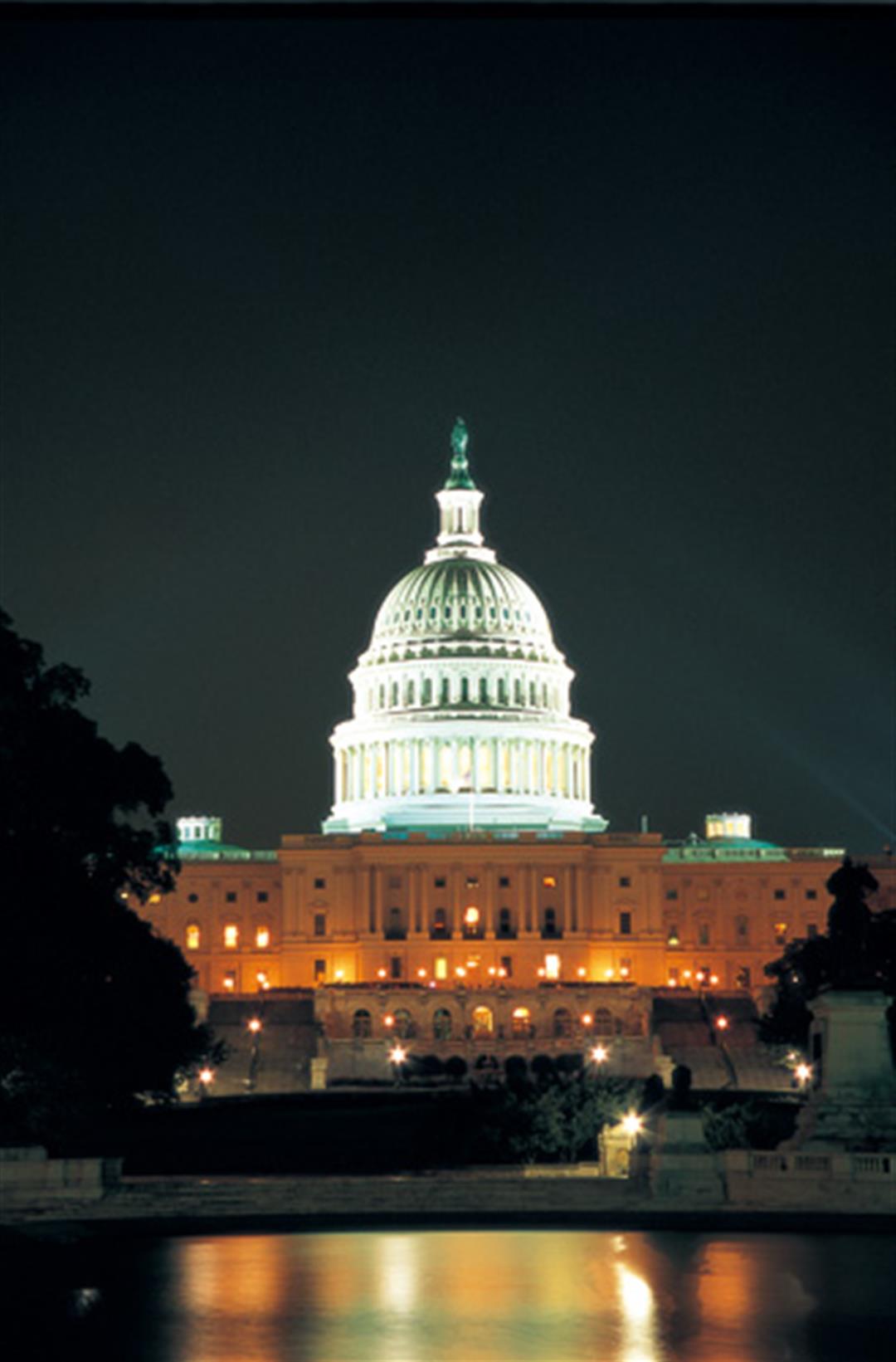
The combined efforts of the public and private sectors enabled Taiwan to bring the rejection rate for US visa applications down to under 3%. Meanwhile, the government also adopted computer-chip passports as well as rules requiring passport applicants to present their applications in person. It all paid off in early October when the US government announced that Taiwan would be admitted to the US Visa Waiver Program on November 1. Shown here is the US Capitol Building.
Free to wander
But the end of visa fees is hardly the most significant aspect of the extension of visa-free courtesies to our nationals. More importantly, every one of the countries on the VWP list is an advanced nation where the rule of law prevails, so Taiwan’s admission to the VWP highlights the fact that the ROC has joined this select group of nations.
Having to get visas for international travel has often left a bitter taste in the mouth for ROC citizens. Huang Juei-min, a professor of law at Taiwan’s Providence University, recalls an unpleasant experience he had in the 1980s while studying in Germany, where he always had to apply for a visa to travel to any of Germany’s neighbors. One time he had joined in on a ski trip to Bavaria, but because of insufficient snow cover someone suggested crossing over into Austria. The group leader, however, nixed the idea out of consideration for Huang’s situation, which threw a big wet blanket on the atmosphere.
Huang notes with regret that many people see convenience and money saved as the only benefits of the visa-free courtesies that Taiwan travelers now receive in an increasing number of countries. In fact, the most significant aspect is the fact that such courtesies enhance Taiwan’s status in the international community. ROC passport holders can now cross borders with the same ease enjoyed by peers from the West and Japan.
Taiwan has obtained visa-free courtesies from the United Kingdom, Canada, and the European Union nations over the past two years, and after a three-year campaign by our government, the US Department of Homeland Security announced on October 2 that Taiwan would be admitted into the VWP.
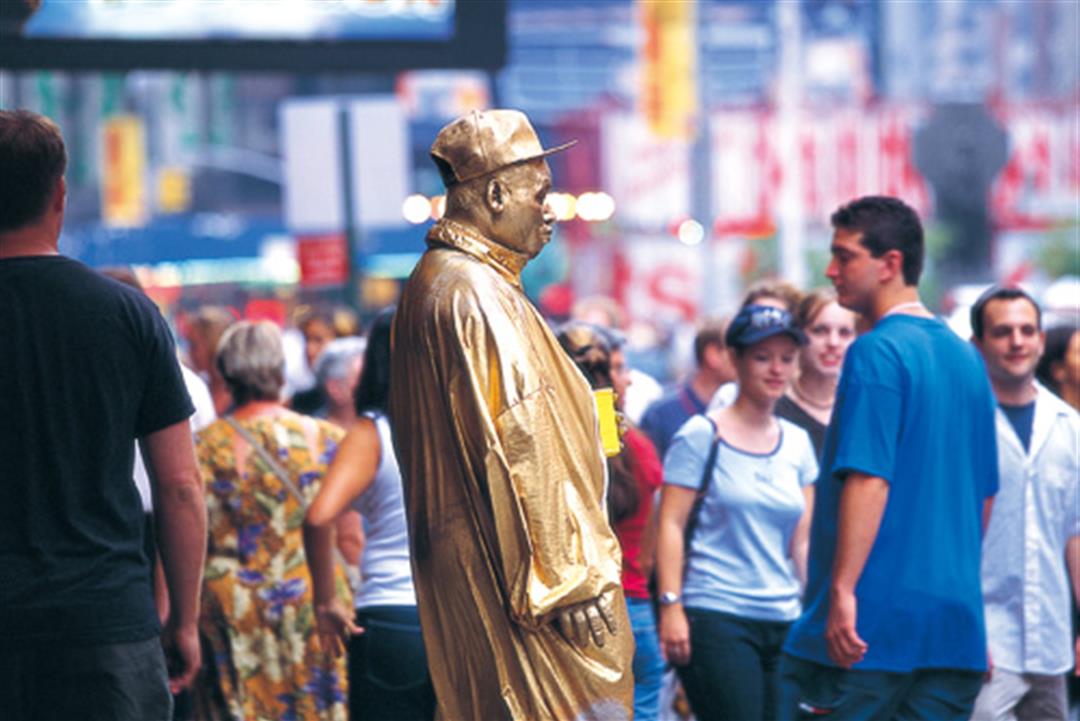
Now that ROC passport holders have been accorded visa-free treatment, the travel industry expects a boom in travel to the US this coming Christmas. The photo at left was taken in San Francisco (photo by Chuang kung-ju), that right in New York.
Unique among VWP nations
The US currently has official diplomatic ties with over 190 different nations, of which only 36 (prior to Taiwan) have been accorded visa-free courtesies. The threshold for inclusion in the VWP is quite high—applicant nations are rigorously screened to ensure that they maintain high standards for dealing with such things as illegal immigration, illegal employment, passport forgery, and border control.
In the Asia-Pacific region, Australia, New Zealand, Japan, Singapore, Brunei, and South Korea are the only other nations currently on the VWP list, and Taiwan is the only one that has no official diplomatic ties with the US. It is thus quite significant that Taiwan will be admitted as the 37th nation on the list.
The Ministry of Foreign Affairs has estimated that visa-free courtesies will mean an annual savings of some NT$600 million in visa fees for ROC citizens. Moreover, in light of the fact that visits by Taiwanese passport holders to the United Kingdom and visits by South Korean passport holders to the US increased by a factor of 1.5 after those nations accorded visa-free treatment to their counterparts’ citizens, it would appear that visits from Taiwan to the US could increase to 600,000 per year, meaning an annual savings of NT$900 million in visa fees.
Beyond that, however, a deeper significance of inclusion on the VWP list is the sense of security it affords to the people of Taiwan.
A United Daily News editorial points out that the US has been Taiwan’s most important diplomatic ally and trading partner for the past 60 years. Each time Taiwan has come under stress of some sort, whether from internal or external sources, many people have emigrated, mainly to the US. But inclusion in the VWP demonstrates that the US sees Taiwan as a safe and high-quality place whose people pose little risk of using tourism as an excuse to flee to the States. This should give our people an enhanced sense of pride and self-confidence, and Taiwanese can set aside their feelings of insecurity.
A comparison with mainland China, with which Taiwan shares a common language and ethnicity, is illuminating. Taiwan has diplomatic ties with only 23 nations and yet is accorded visa-free courtesies by 129 jurisdictions. Mainland China, despite having diplomatic ties with over 170 nations, is (according to the Henley Visa Restrictions Index) only granted visa-free treatment by 41 jurisdictions. In mainland China, 20% of all US visa applications are denied, while in Taiwan the figure is 2.2%. “Quite clearly, the respect enjoyed by the people of any given nation is not determined by how many diplomatic allies that country has, but by whether those people are of a caliber that meets with universally accepted norms,” concludes the United Daily News.
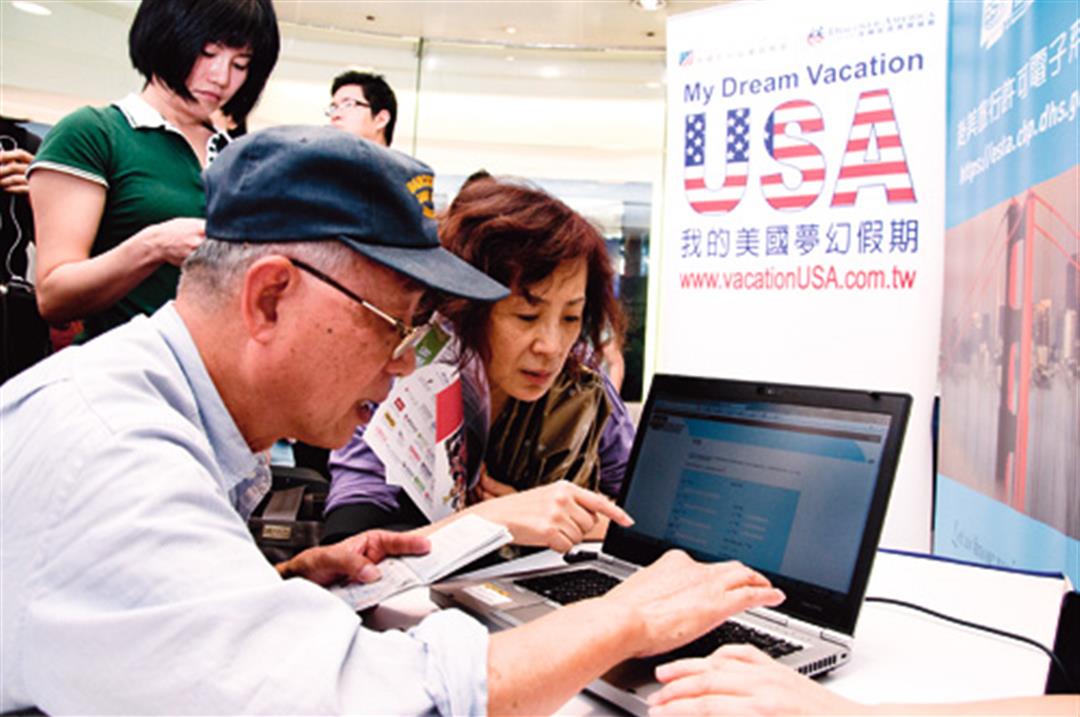
The American Institute in Taiwan set up a stand in a major department store in Taipei to explain the new visa waiver policy to interested citizens.
A strategic view
But there is a more important point. Chen I-hsin, a professor in the Division of American Studies at Tamkang University, points out that US White House spokesman Jay Carney, when commenting on Taiwan’s admission to the VWP, stated that with Taiwan’s inclusion in the VWP, “no message was being sent to any other country,” and it “did not require any kind of a special communication or interaction with Beijing.” Implied in those statements, says Chen, is that “only a democratic nation whose people are of a certain caliber will be honored with inclusion in the program.”
Says Chen: “Taiwan-US security cooperation is an indispensable part of President Ma Ying-jeou’s ‘three lines of defense’ and ‘three legs of national security.’ We must continue forward with security cooperation if Taiwan is to have the clout to share in an ‘economic dividend’ and a ‘peace dividend’ with the mainland.”
On this point, a Commercial Times editorial has similarly described it as quite striking that the mainland—given the delicate three-way relationship between China, the US, and Taiwan—would tacitly accept Taiwan’s inclusion in the VWP, and stated that within the sphere of cross-strait relations, which are both competitive and cooperative, Taiwan has indeed found “diplomatically viable” opportunities to conduct its affairs in the international community; i.e. in matters with a direct impact upon the interests of ordinary people, the mainland is less likely to raise a fuss. It is easier for the two sides to coordinate matters of this sort, which affords Taiwan considerable room for maneuver.
Taiwan’s inclusion in the VWP stands as a major success for President Ma’s pursuit of cross-strait peace and the policy of “viable diplomacy.” Relations between Taiwan and the US have improved significantly.
Since taking office, President Ma has met with over 200 visiting US delegations, far more than the number from any other country, and senior government officials from Taiwan have received very courteous treatment on transit stops in the US while traveling internationally.
The number of jurisdictions that provide visa-free courtesies or landing visas to ROC nationals, which stood at 54 just four years ago, has since skyrocketed. This is a big help to the Taiwan businesspeople who have worked indefatigably over the years and flown all over the globe creating Taiwan’s economic miracle. In addition to the convenience of visa-free travel, they also benefit from indirect official protection and endorsement of their travel documents.
ROC passports keep getting more and more valuable, with 129 jurisdictions (94% of the world total) now offering visa-free courtesies or landing visas to ROC travelers. Once considered something rather ordinary, the ROC passport has truly come up in the world. Taiwan’s people have won their tickets of admission to nations around the globe through their own outstanding performance as citizens of the world.
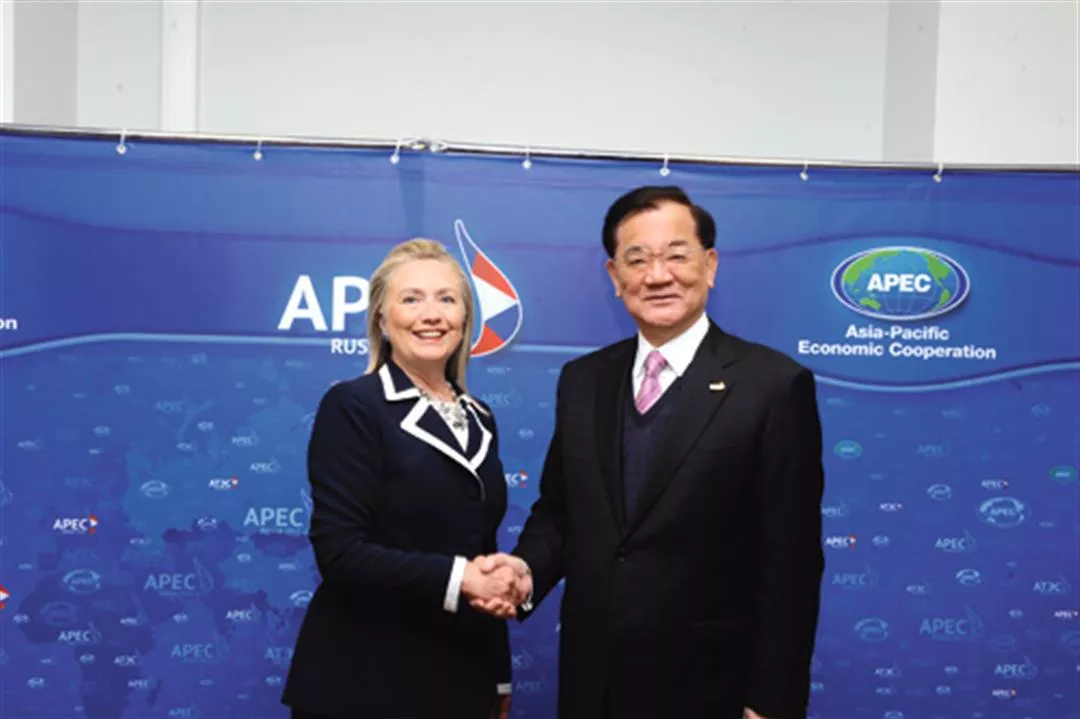
This past September, Lien Chan represented President Ma Ying-jeou in attending the APEC Economic Leaders’ Meeting. On the sidelines of the meeting, Lien met with US secretary of state Hillary Clinton and conveyed Taiwan’s desire for admission as soon as possible to the US Visa Waiver Program, and good news did indeed come not long thereafter. Moreover, the mere fact that representatives of Taiwan and the US were meeting at all was a very significant development in and of itself.




@List.jpg?w=522&h=410&mode=crop&format=webp&quality=80)


